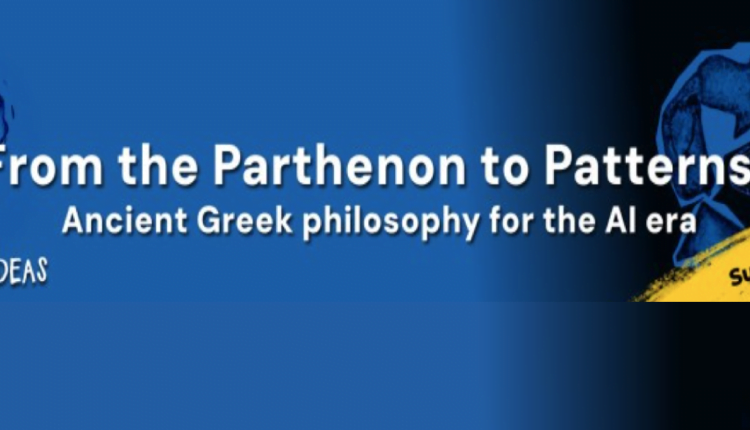From the Parthenon to AI Patterns – Lessons from Ancient Greece for the AI Era | Survivability News Op-Ed.
Ever wondered how the wisdom of Ancient Greek philosophy can enlighten us about the complexities of today’s AI-driven world? Let’s dive in!
The Greeks, specifically Socrates, Plato and Aristotle, have shaped our world profoundly, inspiring generations with their sagacity. Their ideas remain surprisingly relevant, offering valuable insights as we navigate the uncharted waters of the AI era.
Consider Plato’s dialogue, Phaedrus. It emerged at a pivotal juncture when the new writing technology was challenging Greece’s oral traditions. Sound familiar?
Most pertinent to our current debate on AI and society is King Thamus’ retort, a reflection of Socratic wisdom, to Theuth, the era’s pioneering tech enthusiast:
Theuth:
Here is an accomplishment, my lord the king, which will improve both the wisdom and the memory of the Egyptians. I have discovered a sure recipe for memory and wisdom.
King Thamus:
…the discoverer of an art is not the best judge of the good or harm which will accrue to those who practice it. … out of fondness for your off-spring you have attributed to this invention of writing quite the opposite of its real function.
Those who acquire it (writing) will cease to exercise their memory and become forgetful; they will rely on writing to bring things to their remembrance by external signs instead of their own internal resources.
What you have discovered is a recipe for recollection, not for memory. And as for wisdom, your pupils will have the reputation for it without the reality: they will receive a quantity of information without proper instructions, and in consequence be thought very knowledgeable when they are for the most part quite ignorant.
And because they are filled with the conceit of wisdom instead of real wisdom they will be a burden to society.
The lessons from Ancient Greece aren’t merely cautionary tales. They also serve as a reminder of the dual-edged nature of technological advancements. Just as writing, despite its criticism, has been instrumental in human progress, AI, too holds immense potential.
So, the next time you ponder AI’s impact on society, take a moment to reflect on the wisdom of the Greeks. You may find that the answers you seek have been there all along, waiting to be discovered in the echoes of the past.

